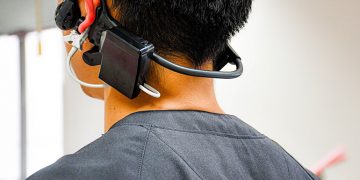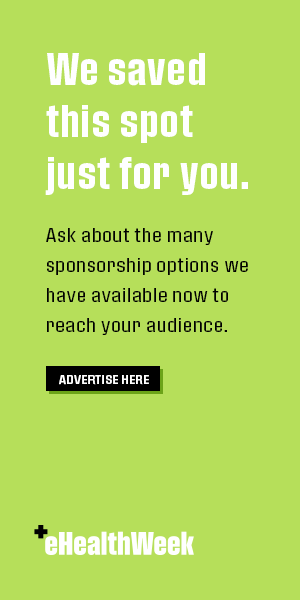We’ve entered another risky, uncertain phase of America’s pandemic summer. COVID-19 cases are surging across most states, and once again, intensive-care units are filling up. Eighteen states have either paused or rolled back their plans to reopen, and even Republican governors who previously resisted public-health guidelines about masks are now asking people to mask up.
So why on Earth do so many articles about this crisis feature pictures of people frolicking on wide-open beaches? Why is an attorney dressed as the grim reaper bothering beachgoers in Jacksonville, Florida? Why are cities such as Los Angeles shutting down beaches?
The answer, unfortunately, goes a long way to explain why, of all the developed, rich nations, the United States may well be stuck in the worst-case scenario, and for the longest amount of time.
Our national pandemic conversation, like almost everything else, has turned into a polarized, contentious tug-of-war in which evidence sometimes matters less than what team someone is on. And in a particularly American fashion, we’ve turned a public-health catastrophe into a fight among factions, in which the virus is treated as a moral agent that will disproportionately smite one’s ideological enemies—while presumably sparing the moral and the righteous—rather than as a pathogen that spreads more effectively in some settings or through some behaviors, which are impervious to moral or ideological hierarchy. Add in our broken digital public sphere, where anger and outrage more easily bring in the retweets, likes, and clicks, and where bikini pictures probably do not hurt, and we have the makings of the confused, unscientific, harmful, and counterproductive environment we find ourselves in now.
[Read: America’s Patchwork Pandemic]
“You’d think from the moral outrage about these beach photos that fun, in itself, transmits the virus,” the Harvard epidemiologist Julia Marcus told me. “But when people find lower-risk ways to enjoy their lives, that’s actually a public-health win.”
The beach shaming is especially terrible because, so many months in, we now know that the virus spreads most readily indoors, especially in unventilated, crowded spaces, and even more so in such spaces where people are talking or singing without masks. Outdoor transmission isn’t impossible, of course, but being outdoors is protective for scientifically well-understood reasons: Open air dilutes the concentration of virus in the air one breathes, sunlight can help kill viruses, and people have more room to stay apart in the great outdoors than within walled spaces.
In other words, one can hardly imagine a comparatively safer environment than a sunny, windy ocean beach. It’s not that there is any activity with absolutely zero risk, but the beach may well be as good as it gets—if people stay socially distant, which is much easier to do on a big beach.
And yet many news organizations have seized upon beaches, and scenes of beachgoers, as a sign of why things are so bad in the United States.
For example, a New York Times article about the “disturbing” number of younger cases featured a beach photo with two women—in bikinis—who are very far away from everyone else in the image frame, who are also clearly far away from everyone else, alone or in small groups. They’re demonstrating the ideal precautions public-health experts have been begging us to undertake for months. Similarly, a Washington Post article talking about how Myrtle Beach, South Carolina, became “a coronavirus petri dish” includes a picture with the caption “Crowds pack the beach in Myrtle Beach,” but the very few people in the photo are separated by tens or even hundreds of feet, at least, and there are no crowds and no packing.
Still, people enthusiastically retweet or share photos of beaches in disgust, even when the photograph shows no crowding whatsoever. Worse, many photos make a scene look more packed than it actually is, because of the way the camera lens or the angle distorts the distances. It’s gotten to the point where even articles about the coronavirus in cities that don’t have a beach feature photos of beaches.
Who are you going to believe, your lying eyes or people who’d like us to get mad at others who dare enjoy life for a day outdoors, which epidemiologists overwhelmingly agree is safer than many other activities?
[Read: Just Because You Can Doesn’t Mean You Should]
But what about the indoor restaurants, packed shops, and house parties at vacation hot spots by those beaches? These activities represent a real risk, and especially given what scientists have found elsewhere, it’s crucial to emphasize that the crowded indoors appears to be conducive to transmitting this virus efficiently. A pandemic is a communications emergency, as the saying goes, and the only effective way to communicate risk effectively is to tell people the truth in plain language, and to give them evidence-based advice on reducing risk. Furious scolding about the least risky part of a potentially risky chain of activities is certain to backfire. When we scold, people stop listening, especially when they figure out that the scolding isn’t evidence-based—and they eventually will. When authorities close parks and beaches without strong scientific evidence, socializing may well move out of sight to more dangerous settings indoors.
This is particularly concerning because some of the places where beach outrage has taken hold, like Los Angeles and Jacksonville, are large cities, so locals enjoying the beach wouldn’t even necessitate travel or other risky behaviors. But limiting access or closing beaches down, as L.A. has done, might result in people congregating in less safe environments indoors. When we conflate high-risk and low-risk activities, people will not know what to avoid or how to do things safely.
We are drowning in anger and fear, but at the same time, we don’t get the basic information we need to live our lives in a pandemic. We don’t even receive the simplest message that applies in this case: Please enjoy the beach and practice social distancing while there, but avoid bars, indoor restaurants, and parties. And if you do have to be indoors around people you are not quarantining with, keep it as brief as possible and wear masks.
This furious scolding isn’t limited to beaches, but often to anything that can be deemed frivolous. But that is no way to sustain ourselves through a pandemic that may last another year. Until we learn how to assess the dire risk we all face, and how to live more safely and with reasonable precautions, we will be powerless to protect ourselves. And all the while, the pandemic rages on.














